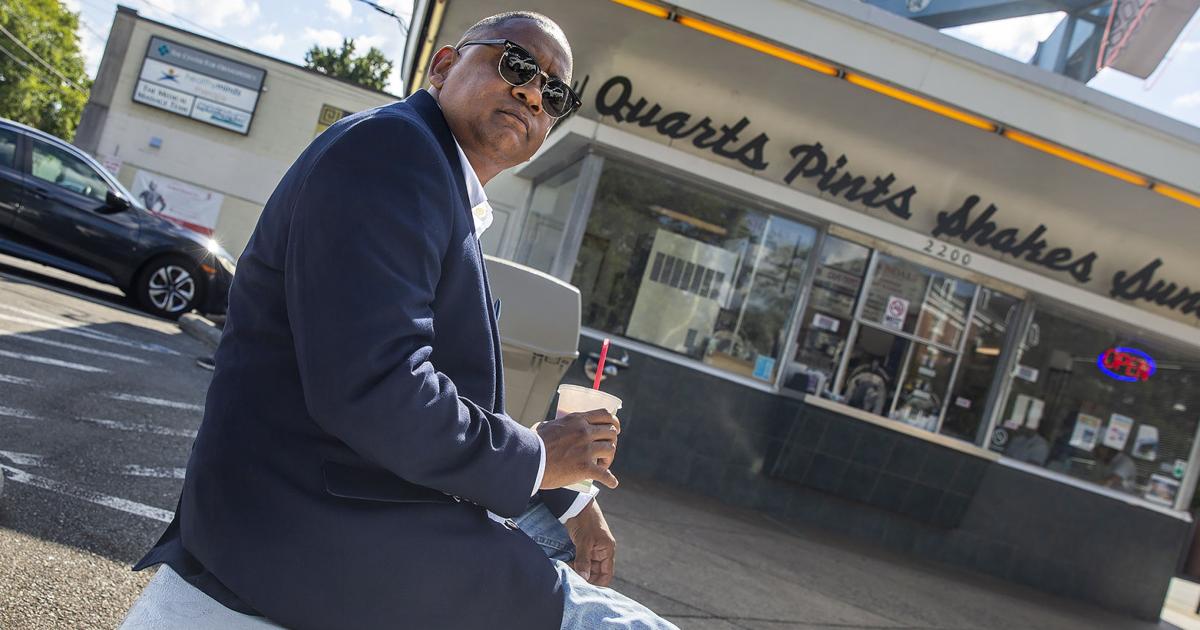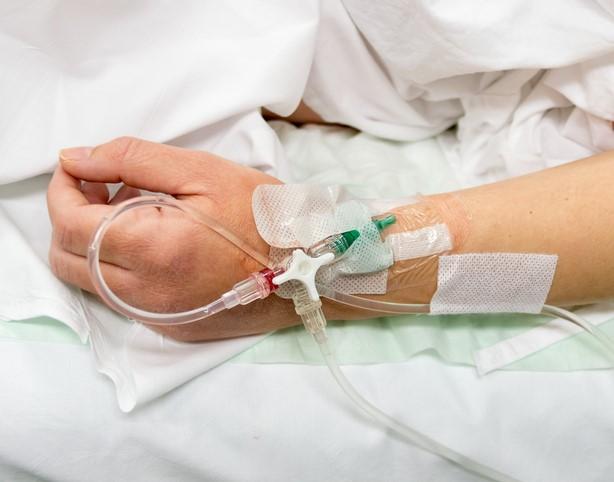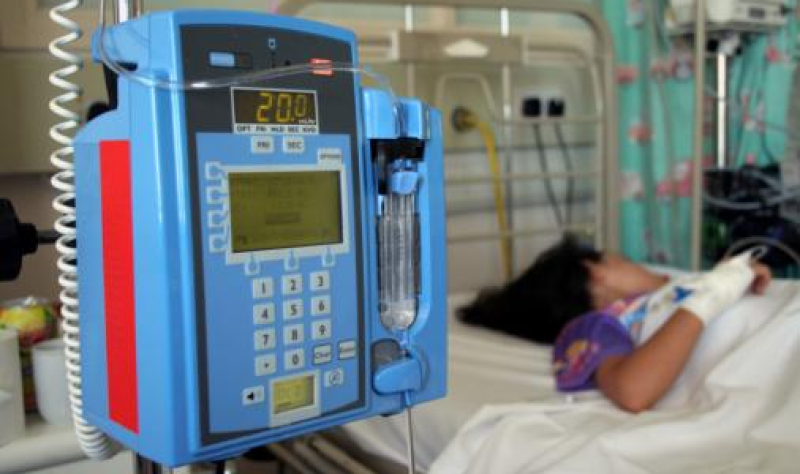Fredericksburg native has super antibodies against COVID-19 | Local News | fredericksburg.com


John Hollis has such a rare ability to fight the virus that’s plagued the planet for 2½ years that he’s been called the medical equivalent of the Holy Grail, an immunological unicorn—“immunicorn” for short—and COVID-19’s worst nightmare.
The Fredericksburg native found out in the darkest days of the pandemic that not only is he immune from the disease that’s killed more than 6.4 million people worldwide, but he also has wicked antibodies that aggressively kill the invading virus.
He’s one of four men worldwide discovered to have this level of super blood coursing through their veins, and stories about his unusual medical status have been published in more than 120 countries.
A woman from Spain proposed marriage—he declined—and others have referred to his black magic or christened him the chosen one. One emailer from South America said Hollis was a direct descendent of Christ, immune to all the plagues of man.
People are also reading…
“The whole thing is just mind-blowing,” said Hollis, a Northern Virginia resident who worried, early on, how others might react to news of his powerful immune system. “People were scared and desperate then, and you never know what people who are scared and desperate might do.”
He turned to friends for help, updating his classmates from Woodberry Forest School in Orange County and the University of Virginia on the discovery and almost daily conversations with doctors. They kept him sane by doing their best to keep things light.
“The running joke was, if you see white vans coming toward you, you need to run,” he said, referring to movie scenes when people are abducted by those in hazmat gear, tossed into white vehicles and never seen again.
The 55-year-old has had time to digest the heavy news handed him two years ago, when a research scientist at George Mason University, where Hollis works as a spokesman, told him tests revealed his super-charged immune system.
Hollis tends to be outgoing and talkative, but got so quiet when he learned the news, the doctor on the other end of the phone asked if he was still there.
“My jaw was on the floor, just hearing what I was hearing,” he said during an interview last week. “This was at a time when you’re seeing people dying in droves. The whole world was shutting down and all of a sudden you’re told, you’re an outlier of epic proportions.”
As Hollis has processed what it means to have blood that’s defeated every virus mutation—so far—he’s also pushed for the next step. Can scientists take his blood—and that of others with these super powers—and develop a one-size-fits-all vaccine that will kill whatever COVID-19 strain comes along? Can they replicate what’s in his blood to help other peoples’ immune systems fight off everything from coronavirus to cancer?
Those are the million-dollar questions Hollis has pondered in the wee hours of the night for last two years. He’s shared his story with anyone willing to listen and has been frustrated that pharmaceutical companies haven’t seemed that interested in the potential to prevent COVID-19, not just treat it. He has his suspicions as to why they’re not exactly knocking down his door, but would rather not say.
“He definitely wants to do something to help, but that’s easier said than done,” said Kevin Tydings, a lawyer in Charlotte, North Carolina, and Hollis’ classmate from both Woodberry and U.Va. “He can’t make the drug companies do whatever they’ve got to do to create a vaccine or some sort of treatment.”
However, Hollis has taken it upon himself, using research skills he’s learned as a journalist to see what he can do with both the “responsibility and passion” he has to “do the right thing,” Tydings said.
Hollis has reached out to doctors, scientists and researchers across the world because he’s eager—almost desperate—to make the most of this discovery. On Tuesday, he has his first meeting, which he arranged, with a group of scientists and doctors to see what can be done.
“You feel like you’ve been given a gift, you need to use it for something,” he said. “I want to help, I can help. What if it’s my son or somebody I know who gets sick? I couldn’t live with myself if I didn’t try everything I could.”
‘IT WAS JUST CRAZY’
The blood test that changed his life almost didn’t happen.
In the first months of the pandemic, Hollis wrote a press release about the way researchers at George Mason University, led by Dr. Lance Liotta, had switched their focus to COVID-19. Liotta is a former deputy director at the National Institute of Health, and George Mason is one of 13 NIH-sponsored Biosafety-Level 3 Biomedical Research Laboratories with the facilities to handle live COVID samples.
Hollis was talking with Liotta in July 2020, after the doctor had tested blood of COVID patients for antibodies. On his way out the door, Hollis casually mentioned that his housemate had been terribly sick with COVID and Hollis felt lucky that he hadn’t gotten it.
“Dr. Liotta said, why don’t you put your blood in the study, and I figured it would be cool to do it, just to be able to say I took part in a study like that,” Hollis said.
Two days later, he got the call that made his jaw drop. The doctor told him that he’d had COVID a few months earlier—but didn’t know it—and had since developed super antibodies resistant to the disease. Hollis began what would become a routine of twice-a-month blood draws at the George Mason clinic, where researchers put his blood through all sorts of wringers.
They discovered he had an American strain of the virus. Hollis had taken his teenage son, Davis, to Europe in early March—right before the world shut down from COVID—and figured he’d contracted it there.
Researchers also noticed that while others developed antibodies, most of their defenses waned over time. Hollis was the exception.
“Even when diluted 10,000 times, my blood still kills 90% of the virus,” Hollis said.
In two years of testing, Hollis said he’s been told his blood has killed all variants of COVID that have come along—and doctors believe it may be lethal to SARS and SERS, other coronaviruses originated from bats. Liotta called him one morning to tell him he was testing his blood to see if it worked against the virus that causes AIDS. It didn’t.
“Can you imagine getting that phone call?” Hollis said, noting how he wondered if his blood could make a difference in a disease that’s killed more than 40 million people since the 1980s. “It was just crazy.”
In a February story by CBS News, Liotta said Hollis’ blood “gives us all of these new ideas for how we can fight the coronavirus or how we can make better vaccines or how we can choose individuals who would be ideal to donate their antibodies to help out others.”
COMPARISONS TO LACKS
Hollis’ first newspaper job was covering sports for The Free Lance–Star and he resumed reporting on Fredericksburg-area high school football games recently, after moving back to Virginia five years ago. Before then, he’d spent most of the last 20 years farther South.
Hollis wrote for the Atlanta Journal–Constitution for more than a decade and covered the University of Florida’s Gators for three years. In 2017, he took his first job in higher education—as a media relations manager at George Mason University—and said he’s loved every minute of it.
His media savvy has proved beneficial as he’s dealt with newspaper reporters across the country and television networks with every letter acronym imaginable (think BBC, NBC and such). He wrote a first-person account about his super antibodies for Newsweek and it was published in March 2021.
Hollis also is working on a book that will detail his experiences as well as some of the ironies at play.
“We have a global pandemic that’s adversely affected people of color the most and here you potentially have a Black man who could play a role at a time when America is reconciling its racist past,” he said.
But if there’s a recurring theme among the thousands of emails and contacts from people worldwide—other than being called Superman—it’s warnings for him not to become another Henrietta Lacks. She was a Black woman in Baltimore who died from cervical cancer in 1951.
Doctors at Johns Hopkins Hospital took tissue samples from Lacks without her knowledge, and while other cells typically died in a lab setting, ones from Lacks reproduced every 24 hours. She was part of one of the most important cell lines in medical research.
“Henrietta’s cells were the first immortal human cells ever grown in culture,” according to Smithsonian Magazine. “They were essential to developing the polio vaccine. They went up in the first space missions to see what would happen to cells in zero gravity. Many scientific landmarks since then have used her cells, including cloning, gene mapping and in vitro fertilization.”
‘SHOWN HIS CHARACTER’
As Hollis and hundreds of people who contacted him pointed out, neither Lacks nor her survivors received any financial benefit from the billions of dollars’ worth of products generated from her immortal cells.
That’s why Hollis consults regularly with a team of lawyers as he attempts to find a way to help others with his super antibodies. He says the financial implications are just as staggering as the potential medical benefits.
As he proceeds with his quest to become what Liotta called “a hope for COVID recovery” and to make sure he’s fairly compensated for such, friends who’ve shared his incredible journey are certain he’ll find a way balance both.
“John’s a very intelligent, level-headed guy,” said RJ Lackey, a U.Va. alum who practices law in Danville. He said his friend has dealt with this “shocking and amazing and crazy” revelation exactly as he would have expected.
“This has shown his character and his love of life,” Lackey said, “and his love of fellow humans and his absolute humor in a crazy world.”
Cathy Dyson: 540/374-5425
#lee-rev-content { margin:0 -5px; } #lee-rev-content h3 { font-family: inherit!important; font-weight: 700!important; border-left: 8px solid var(–lee-blox-link-color); text-indent: 7px; font-size: 24px!important; line-height: 24px; } #lee-rev-content .rc-provider { font-family: inherit!important; } #lee-rev-content h4 { line-height: 24px!important; font-family: “serif-ds”,Times,”Times New Roman”,serif!important; margin-top: 10px!important; } @media (max-width: 991px) { #lee-rev-content h3 { font-size: 18px!important; line-height: 18px; } } #pu-email-form-daily-email-article { clear: both; background-color: #fff; color: #222; background-position: bottom; background-repeat: no-repeat; padding: 15px 0 20px; margin-bottom: 40px; border-top: 4px solid rgba(0,0,0,.8); border-bottom: 1px solid rgba(0,0,0,.2); display: none; } #pu-email-form-daily-email-article, #pu-email-form-daily-email-article p { font-family: -apple-system, BlinkMacSystemFont, “Segoe UI”, Helvetica, Arial, sans-serif, “Apple Color Emoji”, “Segoe UI Emoji”, “Segoe UI Symbol”; } #pu-email-form-daily-email-article h1 { font-size: 24px; margin: 15px 0 5px 0; font-family: “serif-ds”, Times, “Times New Roman”, serif; } #pu-email-form-daily-email-article .lead { margin-bottom: 5px; } #pu-email-form-daily-email-article .email-desc { font-size: 16px; line-height: 20px; margin-bottom: 5px; opacity: 0.7; } #pu-email-form-daily-email-article form { padding: 10px 30px 5px 30px; } #pu-email-form-daily-email-article .disclaimer { opacity: 0.5; margin-bottom: 0; line-height: 100%; } #pu-email-form-daily-email-article .disclaimer a { color: #222; text-decoration: underline; } #pu-email-form-daily-email-article .email-hammer { border-bottom: 3px solid #222; opacity: .5; display: inline-block; padding: 0 10px 5px 10px; margin-bottom: -5px; font-size: 16px; } @media (max-width: 991px) { #pu-email-form-daily-email-article form { padding: 10px 0 5px 0; } }



